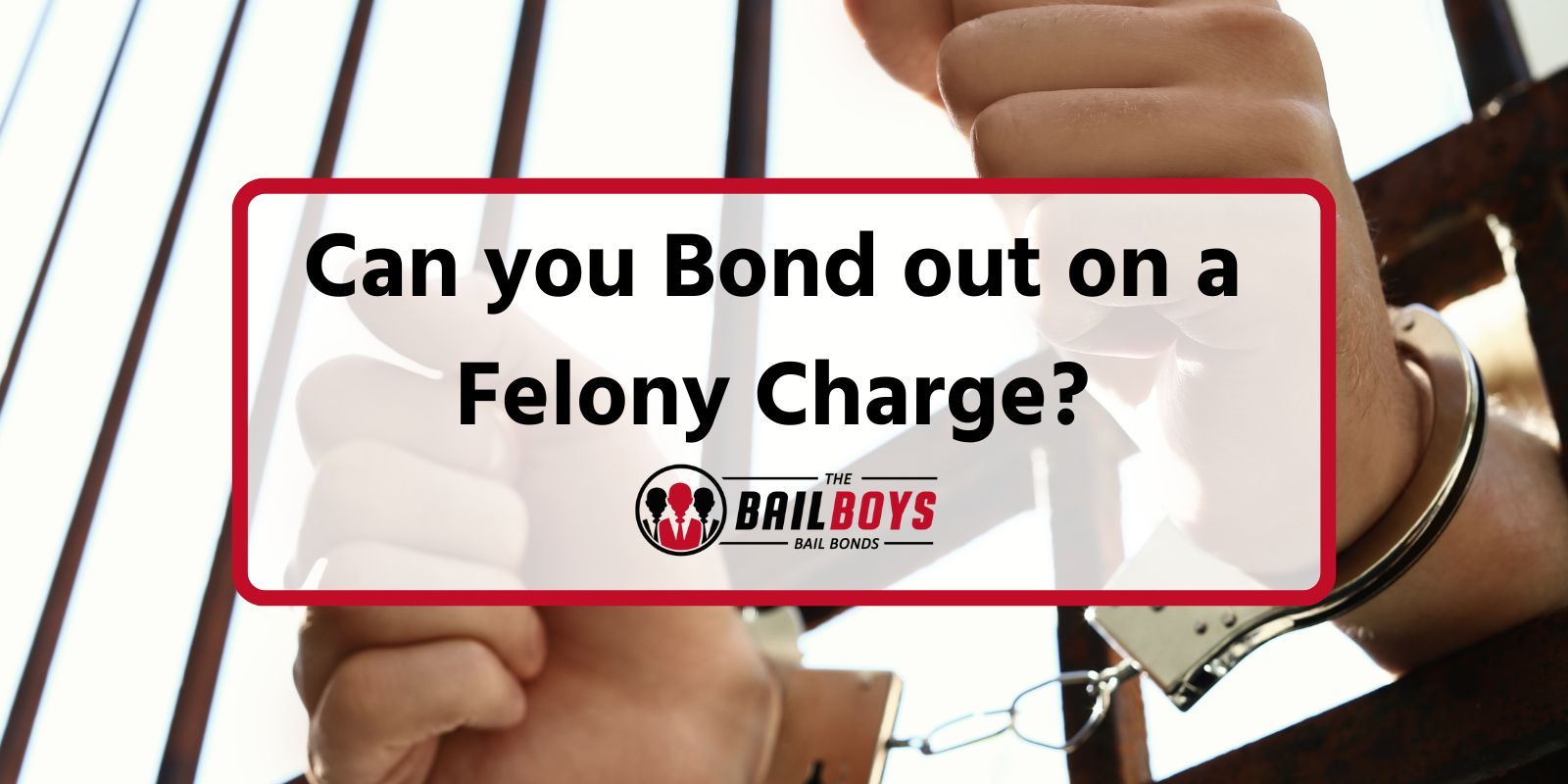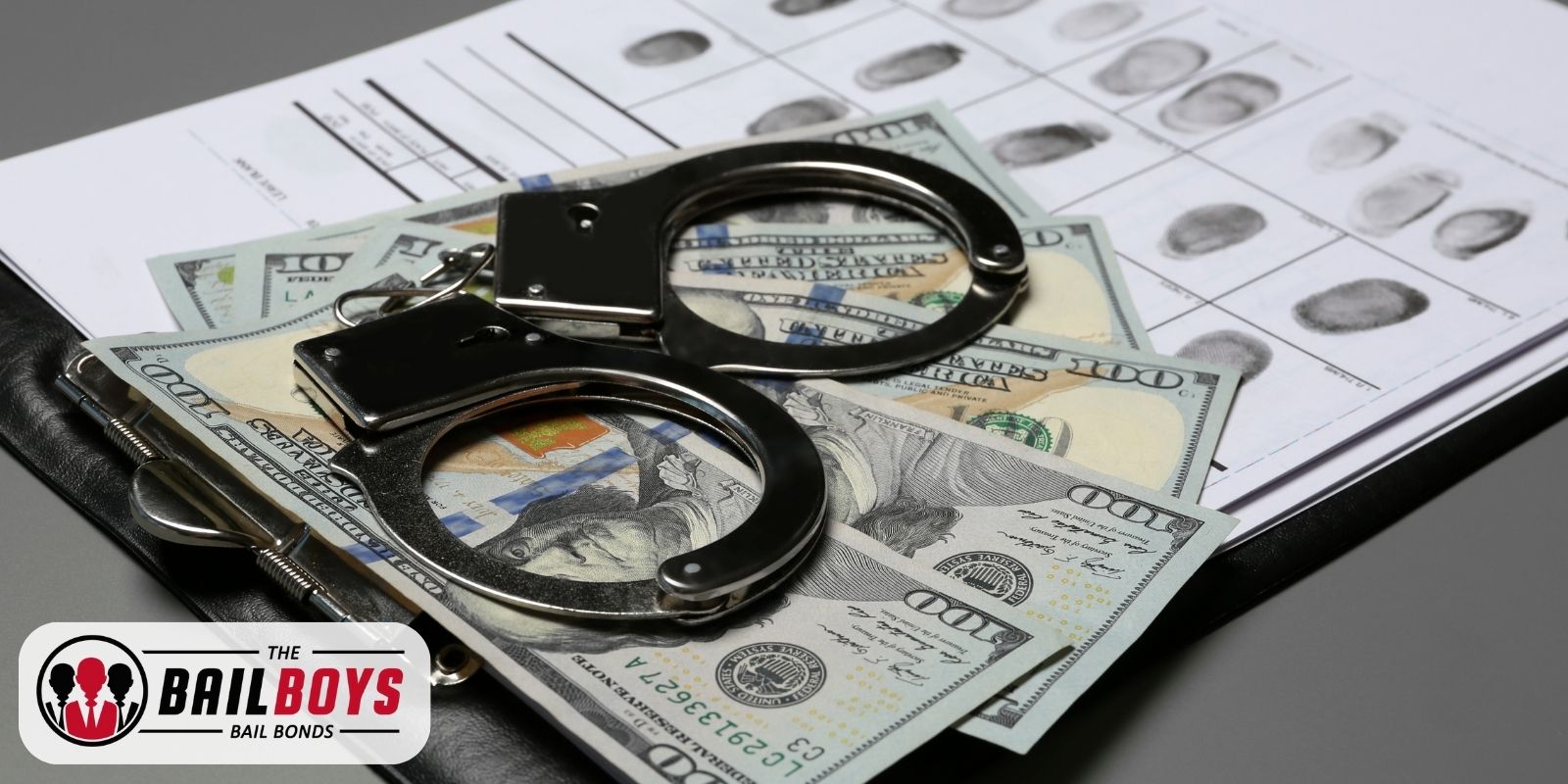
Can You Bond Out On A Felony Charge?
Navigating the intricacies of the justice system can be an overwhelming ordeal, especially when facing serious accusations like felony charges. One question that many ask us is whether or not you can bond someone out on a felony charge? In this article, we’ll cover everything you need to know about bail system, explore its implications for felony offenses, and provide a clear answer to this pressing question.
Is It Possible to Post Bail For a Felony Charge?

In most jurisdictions within the United States, you can indeed “bond out,” or post bail, on a felony charge. The bail system allows individuals accused of a crime to remain free until their trial, provided they supply a certain amount of money as a guarantee that they will appear in court when required. The bail amount is determined by a variety of factors, such as the severity of the crime, the accused’s past criminal history, and their perceived risk of fleeing.
However, it’s important to note that for particularly serious felonies, or in cases where the accused is considered a flight risk or a threat to public safety, the judge may deny bail altogether. It’s also worth noting that bail amounts for felony charges can be quite high, often more than a defendant can easily pay. In such cases, a bail bondsman may be used, where the defendant pays a percentage of the bail to the bondsman, who then guarantees the full bail amount to the court.
Felony Bail Bonds in California

Bail bonds are a type of bond provided by a bail bond company that help allow the release of a defendant from jail. The arrangement is essentially a contract between the accused, the court, and the bail bondsman where the bail bondsman may post bail for the accused. Think of it as a loan for your bail when you don’t have the funds to post bail yourself.
Understanding the financial obligations and terms of a bail bond is critical because it is a binding legal contract that can have significant financial implications for the defendant and any co-signers. It’s important to recognize that if the defendant doesn’t meet the terms of the bail bond, such as failing to appear in court, the bail bond company can seek reimbursement for the full bail amount, potentially leading to the loss of collateral or other financial consequences for the involved parties.
If you or anyone you know is looking for a bail bond company to cover your bail, contact The Bail Boys. We provide professional assistance, compassionate service, and comprehensive guidance through every step of the bail bond process.
How Much Is Bail For A Felony In California?

The cost of bail for a felony charge in California can greatly vary depending on the nature and severity of the charge. Bail can range from a few thousand dollars for lower-level felonies to over a million for serious crimes like murder.
The actual amount is typically set according to a county bail schedule, which is a document established by each county’s superior court that specifies bail amounts for different crimes.
It’s also important to note that a judge has the discretion to adjust the bail amount during a bail hearing. Factors such as the defendant’s prior criminal record, the seriousness of the crime, and the likelihood of the defendant fleeing before trial can influence the final bail amount.
Constitutional Right To Bail
Bail is a constitutional right, meaning that your right to bail is protected by the constitution. Furthermore, the eighth amendment states that “excessive bail shall not be required” which means that courts cannot decide an unreasonable amount of bail.
Importance of the Presumption of Innocence in the Bail Process
Have you ever heard the term “innocent until proven guilty”? What that means is that you cannot be treated as a criminal until proven guilty by the court. Moreover, the Due Process Clause provides that the government cannot deprive a person of their life, liberty, or property without due process of law. This goes hand in hand with the bail process, allowing you to be free before your court date.
Factors Considered When Determining Bail for Felony Charges

Nature/Severity of the Charges: Serious offenses, especially violent crimes, are likely to have higher bail amounts.
The Defendant’s Criminal History: People with a history of prior arrests, convictions, or who have previously failed to appear in court (also known as “flight risk”) may be subject to higher bail.
Risk to Public Safety: If the court deems the defendant a potential danger to others or the community at large, this can lead to a higher bail price or even denial of bail.
The Defendant’s Ties to the Community: If the individual has strong ties to the community, such as steady employment, family, or involvement in local organizations, they may be seen as less likely to flee, which could result in a lower bail price.
The Potential Penalty: If the potential penalty for the crime is severe, such as a life sentence or the death penalty, the amount of bail may be set higher due to the increased flight risk.
Financial Resources: The court may also consider the defendant’s ability to post bail. This can be a complex issue, as bail is not supposed to be an instrument of oppression or result in detention due to financial hardship.
Felony Bail Options

Cash bail
A cash bail is used as a promise that the defendant will show up for their trial. This bail is posted by the defendant using their money that will later be returned to them as long as they attend all necessary court proceedings. If they don’t do so, the money will be forfeited to the government.
Bail bonds
Bail bonds for felony charges work as follows:
Bail Set: The court sets a bail amount for the defendant’s release.
Bail Bondsman Contacted: If the defendant can’t afford the bail, they contact a bail bond company, such as The Bail Boys, who post bail for a non-refundable fee.
Contract Signed: The defendant or a cosigner enters a contract with the bail bond company, promising that the defendant will appear in court.
Defendant Released: The defendant is released from jail.
Court Appearances Failure: If the defendant doesn’t appear in court, the cosigner owes the full bail amount, and a bounty hunter may be employed to find the defendant.
Case Resolution: If the defendant appears at all court dates, the bail money is returned to the bail bond company once the case is resolved.
Bail Hearings for Felony Charges
In California, bail hearings for felony charges occur shortly after arrest. Here, a judge evaluates various factors, like crime severity, the defendant’s criminal history, flight risk, and threat to public safety to decide on bail and its conditions.
The defense and prosecution present arguments and evidence to justify their views on a reasonable bail amount. The defense usually argues for lower bail, highlighting the defendant’s community ties and responsibilities, while the prosecution may argue for a higher amount based on potential risks. The judge balances these considerations with the need to protect public safety and ensure the defendant’s court appearance.
Collateral Requirements for Felony Bail Bonds
Collateral is an asset that the defendant gives up to bail bond companies so that in the case that they do anything to forfeit their bail, the bail bond company has something of the defendant’s. Think of it as an incentive for the defendant to show up for all their required trials so they don’t lose anything that is of value to them. If the defendant does forfeit their bail, the bail bond company may pursue the defendant for the debt.
There are various types of acceptable collateral for a bail bond. These can include real estate, vehicles, jewelry, investments, and cash. The valuation of these types of collateral is typically assessed by using the fair market value of the asset. For example, for real estate, this usually involves a professional appraisal and for vehicles, the make, model, year, and condition will be taken into account.
Should the defendant not offer any collateral, the bail bond company has the right to deny them any bail bonds. Also, as mentioned before, if the defendant does anything to forfeit their bail, the bail bond company may pursue the defendant for the debt.
Consequences of Failing to Secure Bail on Felony Charges
Failing to secure bail on a felony charge often leads to pretrial detention, which can significantly impact the defendant’s ability to prepare a defense. Incarceration restricts freedom, limits access to resources, and can strain mental health, all of which might affect the defendant’s ability to participate in their defense actively.
It can be challenging to coordinate with attorneys, gather evidence, or connect with potential witnesses from jail, which may hinder the defense’s effectiveness. Moreover, being incarcerated can negatively influence the perception of the defendant, potentially swaying the court’s opinion.
Given these potential consequences, it’s vital for individuals facing a felony crime to seek expert legal advice. A competent attorney can explore all available options, including arguing for bail reduction, challenging the charges, or identifying alternatives for detention to increase the chances of a favorable outcome.
Conclusion
Now that you’ve read this entire article on bail bonds and felony charges, you should know exactly what to do and all factors to take into account when securing a bail bond.
Understanding the process of bonding out on a felony charge is a critical aspect of navigating the criminal justice system in California. As we’ve seen, various factors such as the nature of the charges, criminal history, and public safety risks play a role in determining bail amounts.
Furthermore, the method of securing bail, be it through cash, bail bonds, or collateral, can have significant financial implications, making it critical to understand the terms and conditions.
The option of pretrial detention due to failure to secure bail further emphasizes the gravity of the situation, potentially impacting the ability to prepare an effective defense. Therefore, it’s essential to seek professional legal advice to understand all available options fully.
Remember, every person has rights within the judicial system, including the right to a fair bail process. So, it’s encouraged to exercise these rights and explore all possible avenues towards a just and equitable outcome.


